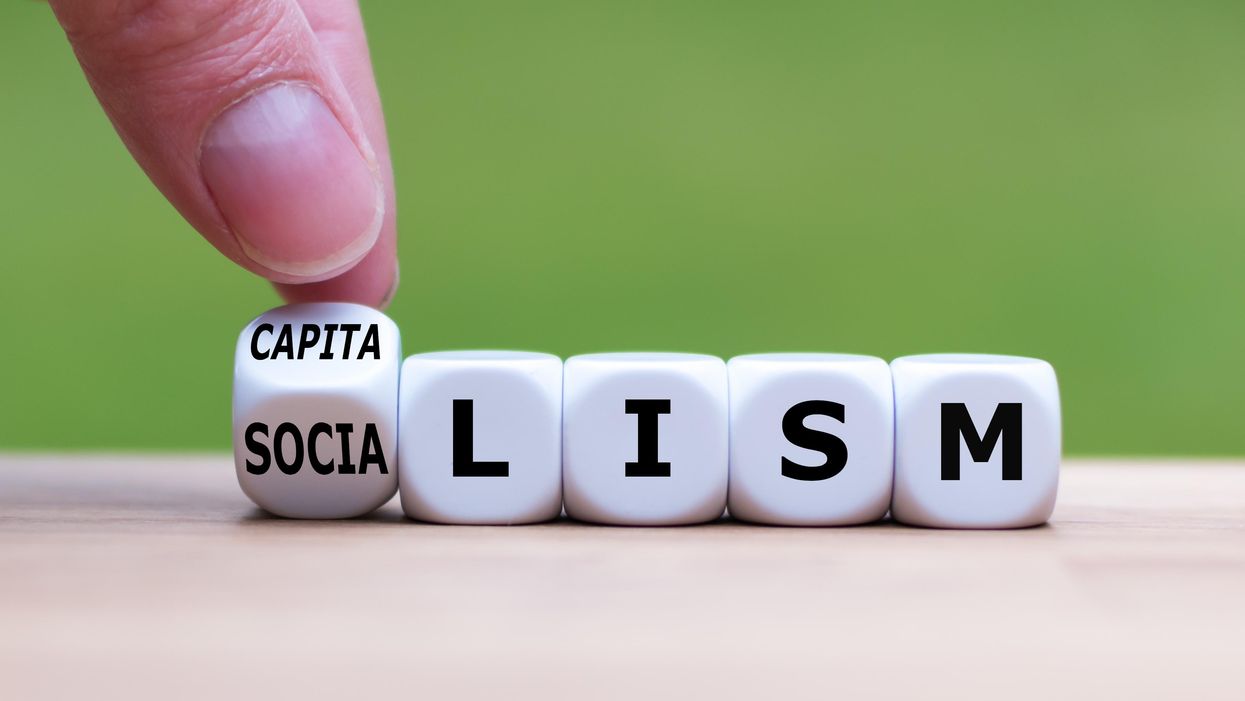The 2020 election and subsequent insurrection were new additions to the long trend of political polarization in the United States. Many Americans do not relate to one another and vote to spite the other rather than advance one's self interest. This trend in society has led to political movements built solely on memes and archetypes of an enemy/other.
These movements are not new, but have gained a new prominence in the social media age. One of the biggest casualties of this breaking of society is critical thinking and variable information.
One example of polarization based on a misconception is the difference between socialism and a strong safety net. The difference between these two concepts has been lost in mainstream politics and caused unnecessary divisiveness and a lack of progress.
Webster defines socialism as any of various economic and political theories advocating collective or governmental ownership and administration of the means of production and distribution of goods. An example of socialism is ownership of a company by a union of workers as well as employee stock ownership programs. An example of a worker-owned company is WinCo Foods, where employees are able to participate in an employee stock ownership plan after working at least 500 hours in their first six months. The core concept and goal of socialism is the democratization of profits based on work contributed rather than purely the position one holds.
A social safety net is defined as something that provides security against misfortune or difficulty, which usually translates to government programs and services like Social Security, Medicare and unemployment subsidies. These programs are funded by various taxes and open to eligible Americans. Oftentimes, social safety programs help business directly though programs like low-interest small-business loans, PPP loans, bailouts and product subsidies. The goal of these programs is to help maintain the capitalist economies as the funds maintain consumerism through participation in the market.
We are now seeing a lot of discussion around socialism when it comes to raising the minimum wage and the expansion of unemployment benefits. These issues have come up as a cause of the current labor shortage in the United States. Due to the expanded unemployment benefits many Americans are making more money staying at home than they were working full-time for minimum wage. The debate between our political parties and the media is whether the minimum wage should be raised and when extra unemployment benefits should be phased out. Many politicians on the right are calling these two policies socialist even though they are just aspects of a safety net in a capitalist system.
These two ideologies have often been twisted and confused on both sides of the political spectrum. They both aim to promote general welfare but through different means. Oftentimes, people requesting social safety policies are called "socialist" as a means to discredit the idea and sidetrack the true conversation on the merits of the policy itself. For example, Republican Sen. Bill Hagerty of Tennessee went on Fox News and called the 2021 stimulus package a "Democrat wish list of socialist programs"— a criticism that at its core is unfounded.
The 2021 stimulus does not mandate stock democratization or worker unionization but rather provides support to workers, businesses and municipalities to maintain their current (capitalist) economic systems in a time of global economic fallout. The problem with this mischaracterization is that it increases polarization amongst Americans causing the deep divides we see today. It is OK to argue the merits of socialism and capitalism, but this is something different. This is demonizing capitalist policies using the negative feelings associated with socialism and countries that have attempted it.
The ideas of "unity" and "coming together" are amazing goals that every American should strive for. These ideals of unity are in line with the words of the preamble to the Constitution, which states "We the People of the United States, in Order to form a more perfect Union, establish Justice, insure domestic Tranquility, provide for the common defence, promote the general Welfare, and secure the Blessings of Liberty to ourselves and our Posterity, do ordain and establish this Constitution for the United States of America." A more perfect union requires many things but at its core it requires good faith and adequate information. In order to take the ideas of bipartisanship, unity and coming together out of the category of empty political platitudes and into action we must put down petty political weapons.
Debating the merits and externalities of social safety net programs is necessary and valuable in a free and just society, but framing these policies through the lense of socialism as a means to turn the public against a policy only hurts American citizens. Issues like poverty and public health are experiences that millions of Americans on both sides can identify with and can come together on. They just need to be given the correct information to make a critical choice.
When we as a country prioritize good faith over political expediency, we can truly start to advance and unify. The American divide is not between those who love socialism and those who hate it, it's between those fighting for a more equitable society and those who propagate false information to maintain power.



















